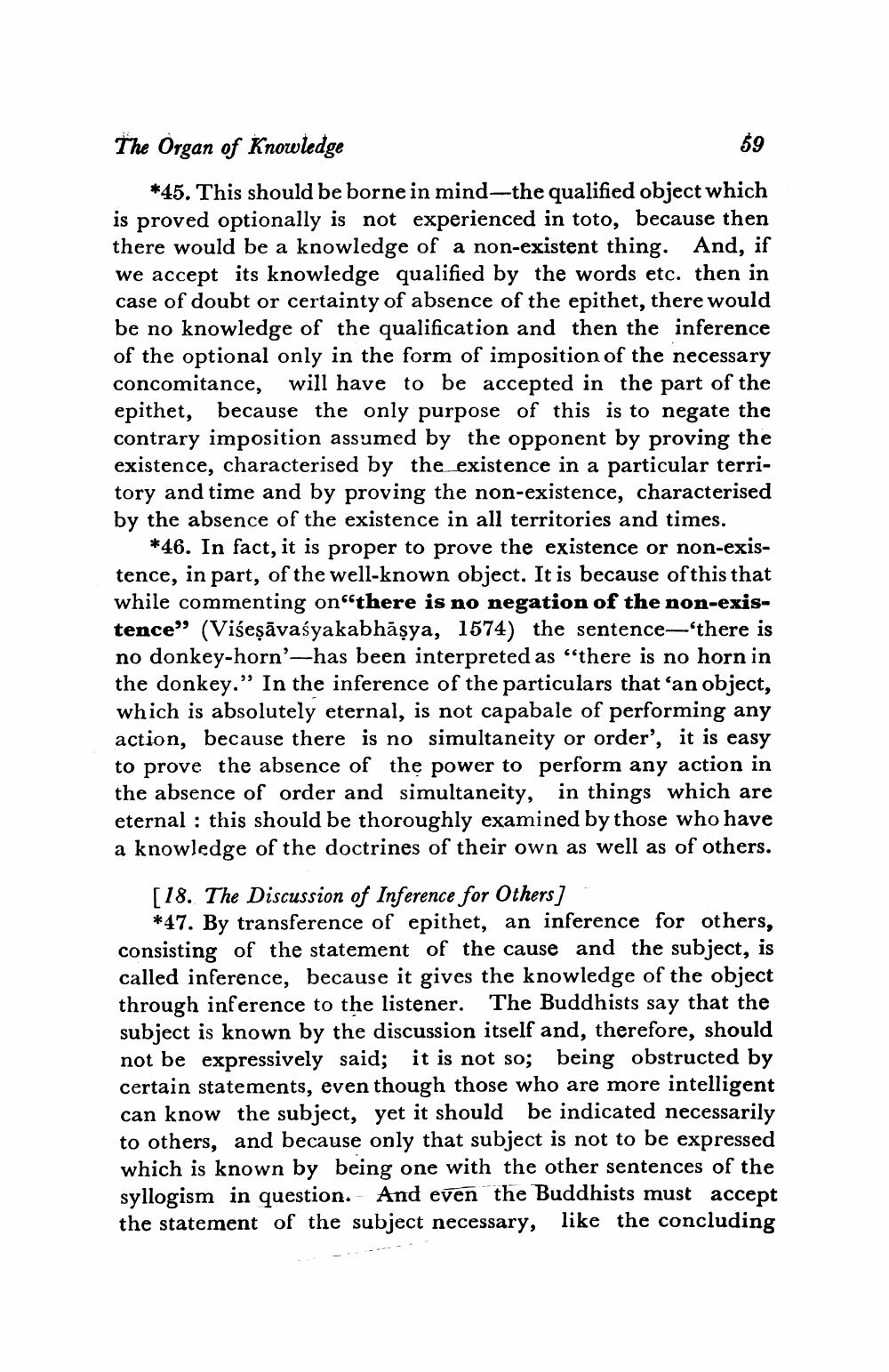________________
The Organ of Knowledge
69 *45. This should be borne in mind--the qualified object which is proved optionally is not experienced in toto, because then there would be a knowledge of a non-existent thing. And, if we accept its knowledge qualified by the words etc. then in case of doubt or certainty of absence of the epithet, there would be no knowledge of the qualification and then the inference of the optional only in the form of imposition of the necessary concomitance, will have to be accepted in the part of the epithet, because the only purpose of this is to negate the contrary imposition assumed by the opponent by proving the existence, characterised by the existence in a particular territory and time and by proving the non-existence, characterised by the absence of the existence in all territories and times.
*46. In fact, it is proper to prove the existence or non-existence, in part, of the well-known object. It is because of this that while commenting on there is no negation of the non-existence" (Viseşāvaśyakabhāşya, 1574) the sentence—there is no donkey-horn'-has been interpreted as “there is no horn in the donkey.” In the inference of the particulars that ‘an object, which is absolutely eternal, is not capabale of performing any action, because there is no simultaneity or order', it is easy to prove the absence of the power to perform any action in the absence of order and simultaneity, in things which are eternal : this should be thoroughly examined by those who have a knowledge of the doctrines of their own as well as of others.
[18. The Discussion of Inference for Others]
*47. By transference of epithet, an inference for others, consisting of the statement of the cause and the subject, is called inference, because it gives the knowledge of the object through inference to the listener. The Buddhists say that the subject is known by the discussion itself and, therefore, should not be expressively said; it is not so; being obstructed by certain statements, even though those who are more intelligent can know the subject, yet it should be indicated necessarily to others, and because only that subject is not to be expressed which is known by being one with the other sentences of the syllogism in question. And even the Buddhists must accept the statement of the subject necessary, like the concluding




